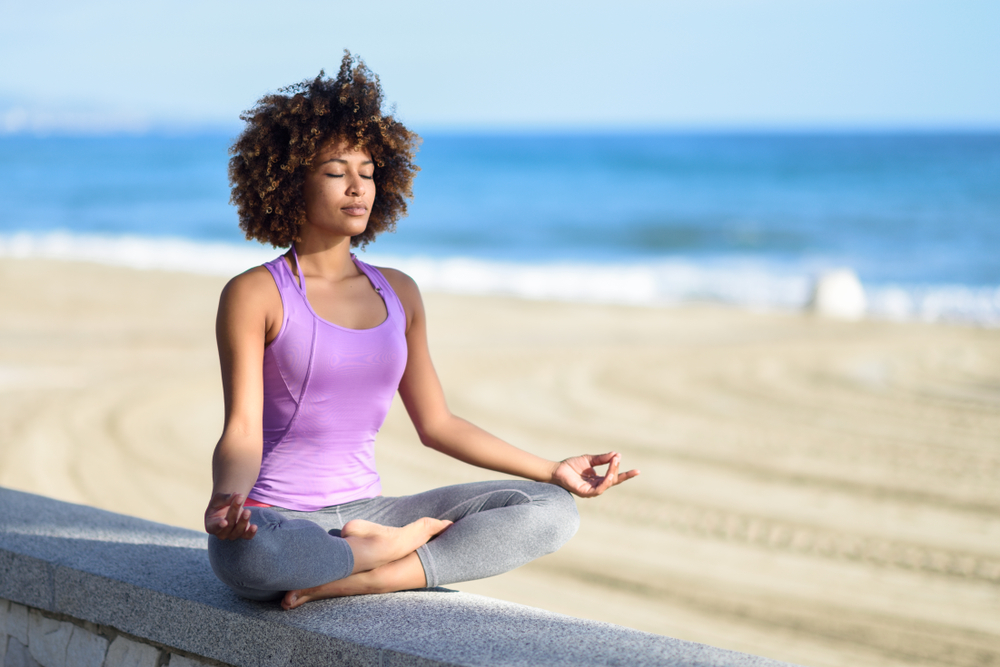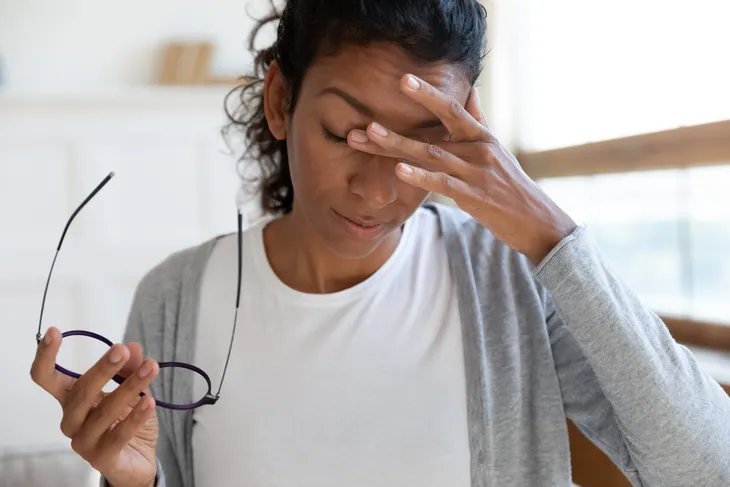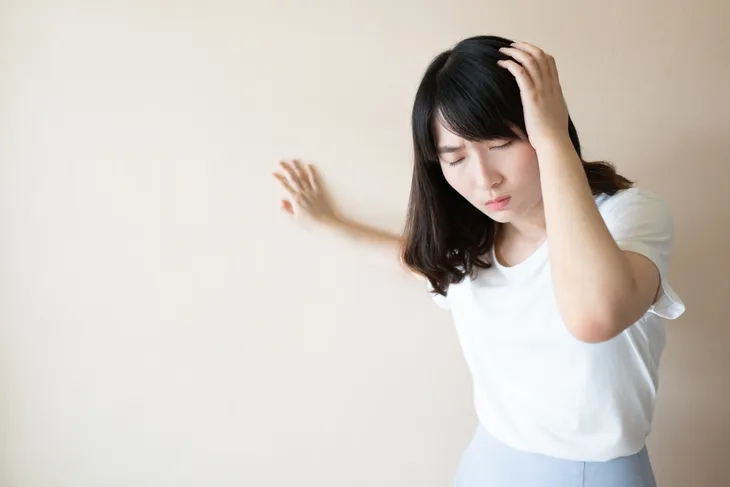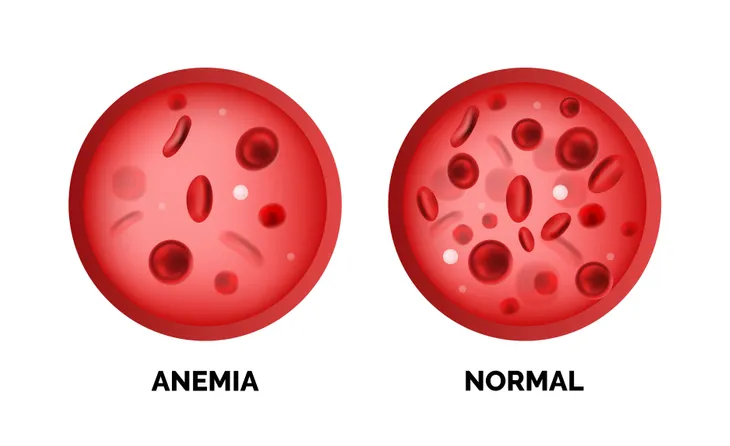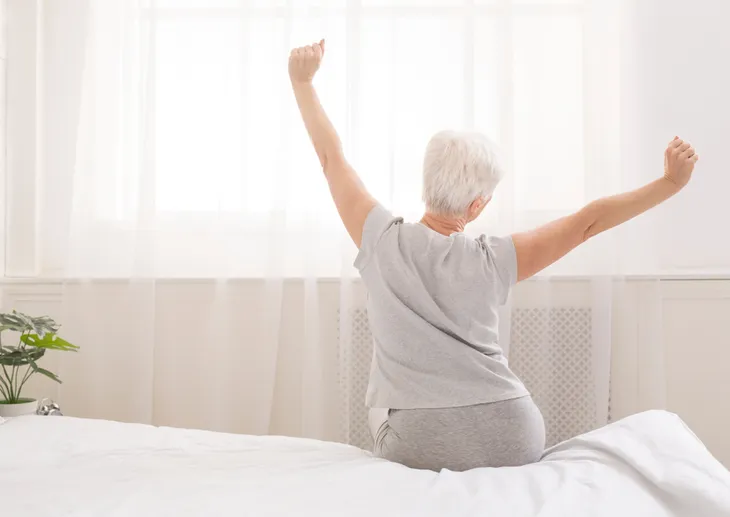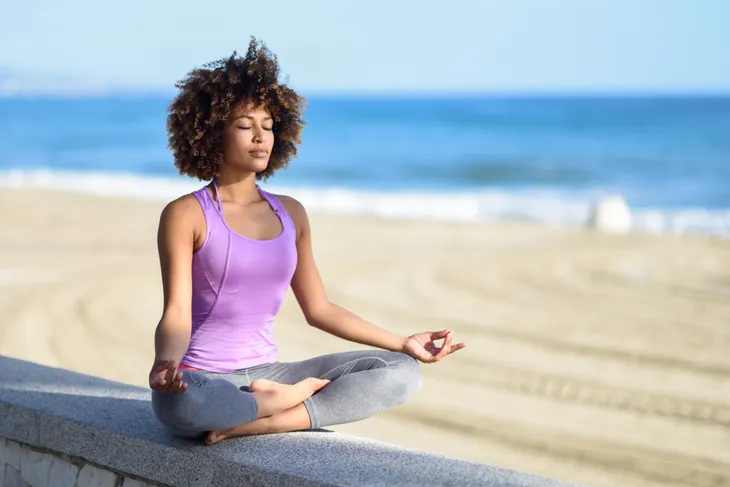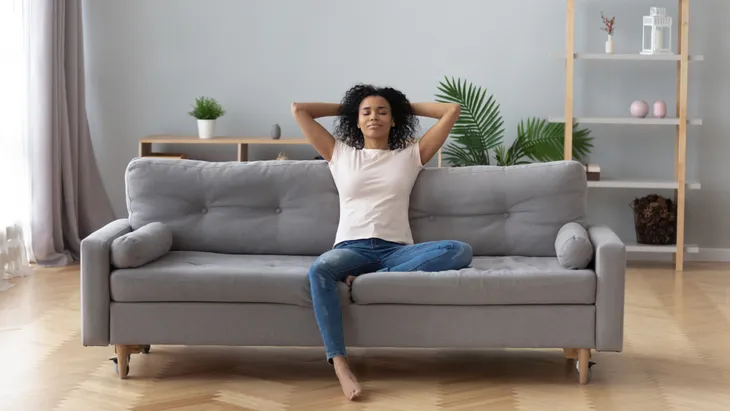- Dizziness is a common problem that affects 15- to 20-percent of the adult population.
- It may bring sensations of spinning, lightheadedness, unsteadiness, or floating.
- Many conditions may contribute to dizziness, but inner ear disorders are frequently the cause.
- Self-care and lifestyle changes can help make your symptoms more manageable.
Most people have experienced the disorienting sensation of spinning or losing their balance. In fact, dizziness is so common, about 50-percent of adults will visit their physician with a complaint of dizziness at some point in their life. Dizziness stems from many causes. Sometimes it gets better on its own without treatment, but when it occurs repeatedly or frequently, it can significantly affect your quality of life. Treatments may include medication and therapy, as well as the self-care measures outlined here.
The Four Types of Dizziness
People use the term “dizziness” to describe a wide variety of sensations. You might feel slightly off-balance or faint, or like the world is spinning around you. The American Academy of Family Physicians uses these symptoms to classify dizziness into four main types:
- Disequilibrium: Feeling unsteady, wobbly, or off-balance.
- Lightheadedness: Experiencing wooziness or feeling vaguely disconnected from your surroundings.
- Presyncope: Feeling that you are about to faint or blackout.
- Vertigo: Sensing that you or the objects around you are spinning.
Dizziness vs. Vertigo
Vertigo is the false sensation of self-movement or the movement of objects around you and it can be very debilitating. People with this type of dizziness often describe feelings of spinning, floating, swaying, tilting, or being pulled in one direction.
Episodes of vertigo can be triggered by simple body movements such as bending, turning your head, or rolling over in bed. The condition tends to come on abruptly and forcefully and may be accompanied by other troublesome symptoms such as nausea, vomiting, and abnormal eye movements called nystagmus.
What Are the Main Causes of Dizziness?
While dizziness is a symptom of many conditions, it rarely signals a life-threatening illness. Dizziness is most frequently caused by inner ear disturbances, such as an ear infection, benign paroxysmal positional vertigo (BPPV), or Meniere’s disease.
Sometimes, dizziness may result from an underlying health condition within the heart and vascular system. This includes orthostatic hypotension, a sudden drop in blood pressure when you sit up or stand too quickly. Poor blood circulation from an irregular heartbeat or narrowed arteries may also cause spells of dizziness or lightheadedness.
Other Causes of Dizziness
People with anxiety disorders, low iron levels (anemia), low blood sugar or vision problems may experience generalized wooziness or foggy head feelings. Dizziness can also be the side effect of certain medications, such as anti-seizure drugs, antidepressants, sedatives, and blood pressure-lowering medications.
Less often, dizziness and vertigo are associated with brain-related conditions such as multiple sclerosis, Parkinson’s disease, migraine headache, or an injury to the head or neck. Sometimes, dizziness occurs for no known reason. You’re also naturally at a higher risk for dizziness as you get older.
Managing Dizziness and Vertigo
If your dizziness doesn’t go away or keeps returning, it’s important to see your doctor to determine the cause. Dizziness is not only unpleasant but it also increases your risk for falls, injuries, and accidents. Left unchecked, dizziness caused by an underlying condition may also lead to long-term health consequences.
Luckily, in most cases, dizziness and vertigo symptoms are very treatable. Depending on the cause or severity, your doctor may recommend balance therapy or medications such as antibiotics, antihistamines, water pills, and anti-nausea agents. Proper self-care also plays a large role in making your symptoms more manageable.
Stand Up Slowly
Many people experience dizziness when transitioning from sitting or lying down to standing. Known as orthostatic hypotension, this common type of dizziness is caused by a temporary dip in your blood pressure. To reduce or prevent symptoms:
- Sit on the edge of your chair or bed for a few moments before standing up.
- Rise more slowly and avoid sudden movements or changes in posture.
- March your feet in place if you must stand or sit for long periods of time.
- Clench your hands or legs before standing to send blood back up to your heart.
Learn the Epley Maneuver
BPPV is the most common type of vertigo and also the easiest to treat. This condition happens when tiny calcium crystals (canaliths) in your inner ear move out of place. The American Academy of Otolaryngology recommends canalith repositioning maneuvers, such as the Epley maneuver, to speed recovery and provide relief.
The Epley maneuver is a series of simple movements for the head and body that can be done with a doctor, physical therapist, audiologist, or at home with guidance. These movements are safe and effective and offer an 80-percent cure rate.
Tinker With Your Diet
Some people with dizziness find that certain foods and substances aggravate their symptoms. For example, salt, sugar, caffeine, and alcohol may trigger dizziness if you have Meniere’s disease. People with migraine-associated vertigo are often advised to avoid foods that contain tyramine, an amino acid found in smoked meat, ripened cheese, red wine, and other foods.
Sometimes dizziness strikes after you eat a meal. This can occur when digestion diverts extra blood flow to the stomach. If this happens to you, try eating smaller, more frequent meals and limit rapidly digested carbohydrates such as white bread, white rice, potatoes, and sugary drinks.
Start a Home Exercise Routine
Physical activity can help get your blood moving and improve your balance. Start slow with simple activities like walking, even if it’s just 5- to 10-minutes a day. Practicing daily yoga or tai chi can also help reduce dizziness by strengthening your balance, focus, and coordination.
If your dizziness is severe, perform knee extensions, marches, rows, and overhead presses while seated. The Vestibular Disorders Association also recommends a specific daily routine of home-based balance retraining exercises that can help you with long-lasting symptoms of dizziness and imbalance.
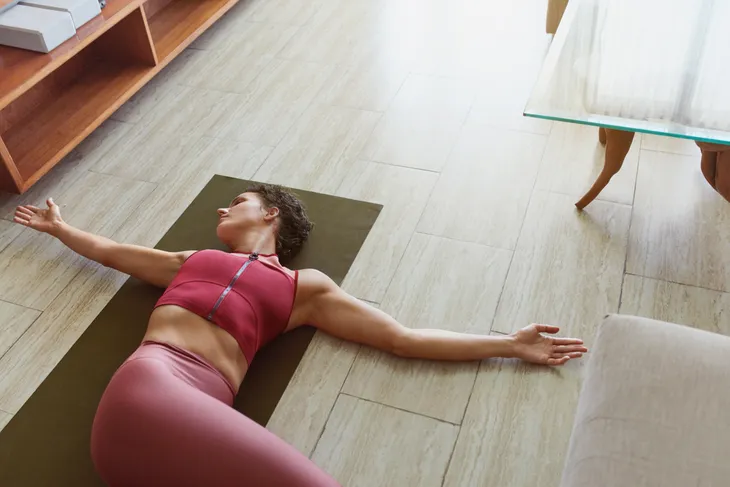 Shutterstock/puhhha
Shutterstock/puhhhaSeek Alternative Treatments
When used alongside conventional medical treatments, alternative or integrative treatments can help you manage dizziness symptoms and reduce stress. Supplements such as ginkgo biloba extract and vitamin D have shown promise in treating vertigo. Research also continues on CBD, a naturally occurring chemical compound found in the hemp plant.
Other alternative treatments to explore include massage therapy, meditation, and acupuncture. Some people with dizziness also use essential oils — particularly peppermint, ginger, lavender, lemon balm, and frankincense — to feel more relaxed.
Prevent Falls
Taking care of your home is also part of taking care of yourself. If you’re prone to dizziness, a few simple changes around the house can help make it a safer space.
To prevent falls in your home, keep it well-lit, and remove any floor clutter that might cause you to trip. This includes loose or exposed electrical cords, throw rugs, or stools. In the bathroom, place nonslip mats in front of sinks and in the bathtub. You might also consider handgrips by the toilet or shower, so you always have something to hold onto when standing.
Aim for Overall Wellness
Treatments for dizziness and vertigo will depend on the cause. In some cases, symptoms may go away on their own without any treatment. The brain and body can adapt to whatever is triggering them.
When dizziness is chronic, talk to your doctor. The good news is that medication, therapy, and home self-care strategies are usually quite effective. In fact, taking care of yourself is one of the best things you can do to ward off episodes. Stay hydrated, eat nutritious whole foods, exercise, and get enough rest to feel your best.
